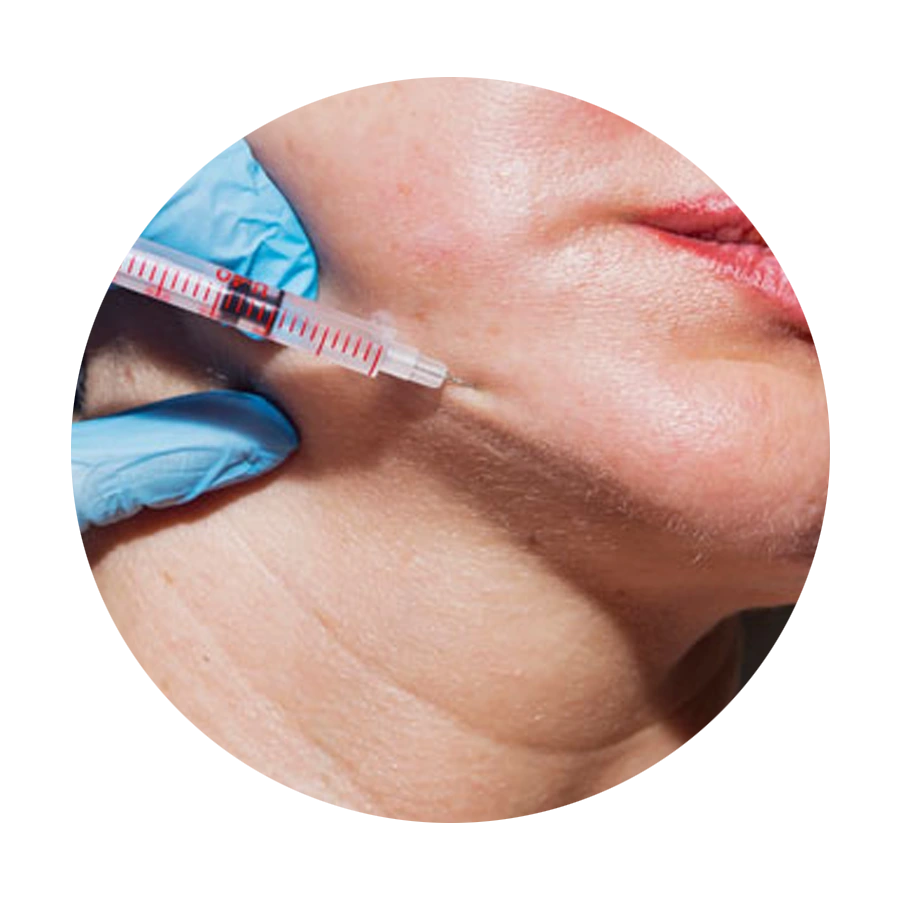Skin peels off Skin problems are common and can be caused by many things, whether it's the weather, improper skin care, lack of moisture, or even allergies to the products you use. This article will take you deep into the causes of flaky skin, along with effective solutions to get your skin back to being smooth, moisturized, and hydrated again.
Peeling skin
- What is flaky skin? What does it look like?
- What causes flaky skin?
- 4 ways to treat flaky skin
- 10 ways to prevent flaky skin
What is flaky skin? What does it look like?
Peeling skin is a problem where the epidermis peels off, causing the skin to become dry and flaky, itchy on the face, and red. For some people, the symptoms can be severe, such as the skin on the face peeling off in sheets, causing skin irritation.
Flaky skin is a skin problem caused by dry, cracked skin or daily life. Dry skin or dry face is when the oils that coat the skin decrease. It is caused by the loss of water in the skin, which results in the skin lacking moisture. When the skin does not produce enough oil, it causes the face to become dry. But if the skin produces too much oil, it can cause acne.
Peeling skin will look like this:
- Dry facial skin: The face will feel tight, dry, and lack moisture.
- Skin peeling is caused by the outer skin cells coming off in thin sheets or small bumps.
- The skin is flaky, there will be small flakes of skin on the face, similar to rice bran.
- Itchy facial skin. For some people, itching occurs slightly in areas where the skin peels.
- The skin on your face is not smooth due to peeling, making your skin look uneven.
- Redness of the face: Sometimes, peeling skin may cause redness or irritation.
What causes flaky skin?
If you notice that your skin is starting to flake and look dry for no reason, it could be a sign that your skin is facing some kind of problem. Understanding the cause of flaky skin is important in choosing the right treatment. There are many factors that can cause flaky skin, including:
- Dehydrated skin This is the most common cause, which is caused by the body not getting enough water, leading to dehydration, resulting in the skin lacking moisture.
- Deficiency of certain nutrients Such as vitamin B, vitamin E and essential fatty acids, these nutrients are essential for skin health.
- Weather conditions: Dry and cold air draws moisture away from the skin, causing it to become dry or flaky. Rapid changes in temperature can also affect the skin.
- sunlight UV rays damage the skin layer, causing the skin to lose moisture.
- Choosing products that contain ingredients that can cause irritation For example, excessive amounts of alcohol or BHA/AHA acid can irritate the skin and cause peeling.
- Over-cleansing your skin It can damage the skin's lipid layer, causing dryness and flaking, as well as using harsh cleansers.
- Allergic reactions or irritation Some chemicals can cause allergies or irritation, such as perfumes or preservatives, and choosing products that are not suitable for your skin type.
- Stress: When the body is stressed, the hormone cortisol is released, causing the skin to lose water and moisture.
- Hormonal changes For example, menstruation, pregnancy, or menopause can affect skin moisture.
- Some skin diseases For example, dermatitis or psoriasis can cause the skin on your face to become dry and flaky.
- Use of certain medications Some medications, such as antihistamines and acne medications, may have the side effect of causing dry skin.
4 ways to treat flaky skin
There are many ways to treat flaky skin, including procedures and proper skin care. The following are treatments that can help relieve the problem of flaky skin.
1. Treatment with skin care and restoration procedures

As you know, skin problems such as dry skin, dull skin, or large pores are all issues that bother many people. Taking care of your own skin is important. However, skin care and rejuvenation procedures are another option that will help your skin return to its beautiful, clear state quickly and with clear results.
- Facial Treatment It is a deep facial skin care method by a skin specialist, which aims to help improve the condition of the face and help solve various skin problems.
- Chemical Peels It is a treatment that uses chemicals to help exfoliate the outer layer of skin cells, which makes the skin look smoother, brighter, and reduces dark spots and redness. Peeling has various levels of intensity to choose from, depending on the skin condition, such as Alpha Hydroxy Acids (AHAs), Beta Hydroxy Acids (BHAs), Trichloroacetic Acid (TCA).
- Microdermabrasion treatment It is a skin exfoliation using very small crystals or special tools such as suction heads with different coarseness to exfoliate the skin, which helps remove old skin cells and stimulates the production of collagen, making the skin smooth, bright, reducing dark spots caused by acne and reducing wrinkles.Y
2. Treatment with laser procedures and injection of nutrients

Laser and injection of nutrients are another popular option for skin care, especially for facial skin problems that require deep correction.
- Laser Resurfacing: It is a treatment that uses high-energy laser light to shoot directly at the skin. The laser helps exfoliate the outer layer of skin cells and stimulates the production of collagen and elastin, making the skin smooth, reducing wrinkles, tightening pores, and effectively solving various skin problems.
- Dermal Fillers: It is an injection of hyaluronic acid, a substance that occurs naturally in the human body. The filler stimulates the production of collagen and elastin, helping to fill in missing areas, giving the face more dimension, making the skin look more moisturized, and making the face look younger.
- Mesotherapy: It is a treatment by injecting concentrated nutrients into the middle layer of the skin to solve facial skin problems such as dull skin, large pores, and skin that lacks moisture. It also helps reduce excess fat, brightens the face, moisturizes the skin, and reduces wrinkles, etc.
3. Treat with skin care products

Taking care of your skin with nourishing products is an important step that should be done first and should be done regularly to keep your skin healthy, radiant, and help slow down skin deterioration. Choosing the right nourishing products for your skin is therefore important.
- Use of skincare products There are several steps, each step uses different products. Each step uses different products.
- To thoroughly cleanse your face, remove dirt and makeup. You should choose a gentle cleanser with a pH of 4.5-5.5.
- Use toner to balance the skin's pH and prepare it for the next step of nourishment.
- Applying serum Serum has a light texture, is quickly absorbed, and contains concentrated nutrients. It helps to solve specific skin problems such as redness, dark spots, and wrinkles.
- Applying moisturizer hydrates the skin, prevents dryness, and reduces water loss from the skin.
- Applying sunscreen protects the skin from UV rays, which are the main cause of skin damage.
10 ways to prevent flaky skin
The skin becomes flaky and dry, itchy and red. If a person experiences this problem, it may negatively affect their self-confidence in appearance or may lose credibility in their career. To avoid such impacts, we can prevent flaky skin by the following methods:
- Drink enough water At least 8 glasses of water a day helps balance the body. It also makes the skin look moisturized, fresh and not dry.
- Eating healthy foods You should choose to eat vegetables, fruits or meat that contain vitamin B, vitamin E and essential fatty acids. These nutrients are essential for skin health.
- Getting enough rest You should get at least 7-8 hours of rest per day. Getting enough sleep will help your skin recover.
- Choosing gentle cleaning products Avoid using products with a pH that is too high. The ideal pH for skin is 4.5-5.5.
- Nourish your skin with moisturizerOr serum that contains ingredients Hyaluronic acid Which will help retain moisture for the skin.
- Avoid using skin care products that contain alcohol, perfume, and preservatives. Or chemicals that cause irritation to the facial skin
- Face Mask You should choose a mask that contains moisturizing ingredients such as aloe vera, honey, or tomato, and do it at least 1-2 times a week.
- Avoid scrubbing your face too hard. And you should choose a scrub with a fine texture because using a scrub with a rough texture will cause inflammation and flaking.
- Washing the face You should wash your face only 2-3 times a day and avoid washing your face or taking a shower with very hot water because the heat will dry out your skin.
- Applying sunscreen As you know, UV rays are the main cause of skin damage. Therefore, before leaving the house or doing outdoor activities, you should always apply sunscreen. Choose one with SPF 30++.






